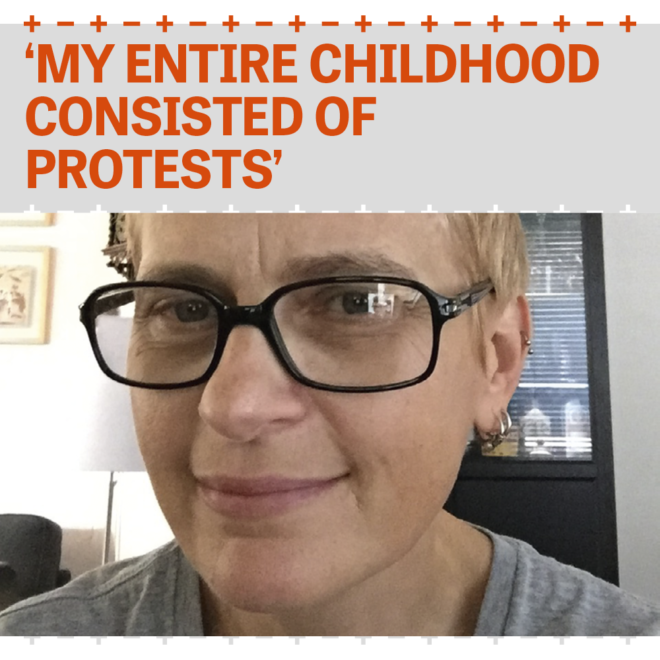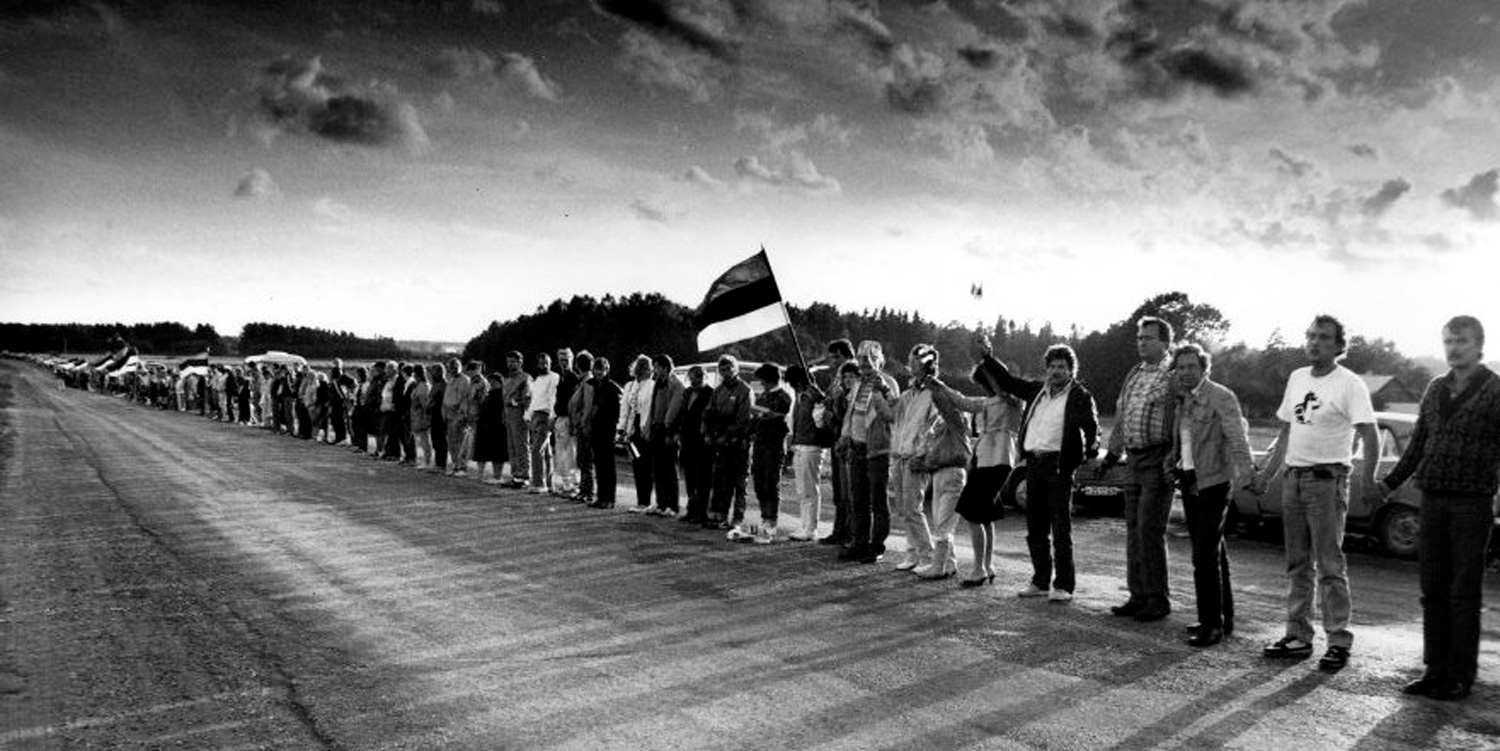Killi Mirka (1969), Estonia, Tallinn 1988/1989
“It was like growing up in a very beautiful prison. Estonia is a gorgeous country. We had clothes and food, and although the clothes were ugly and the food was bad, we did have it. But we did not have freedom. And what that’s like is hard to put into words; it’s a feeling that’s in your heart.
“Actually, I’ve been angry and in protest my entire childhood. I come from a family of people who think critically. At home, we always secretly celebrated Christmas and Easter, which was strictly forbidden by the Soviets. Music played an important role in our house and my father was in a rock band. Increasingly, the group secretly started to play songs about freedom and the fatherland.
“I had to learn Russian at school, but I always refused to speak it. Because of that, and because I often came up with a clever reply, I have fought with Russian children several times. My life consisted of many small acts of protest.
“That small protest grew into something bigger in the summer of 1988. The first time I participated in a nightly singing protest, I went with my father, stepmother, and my little brother and sister. I was around eighteen years old. It was very dark at ten in the evening. We gathered on the spot where the normal song festival was held every four years: a massive music stadium with a large podium in the shape of some kind of shell.
“It was overwhelming to see how many people had come. Many protesters were holding an Estonian flag in their hands, something that had always been strictly forbidden. Once, my uncle had furtively shown me an Estonian flag at his place, but now people were holding the flags openly in their hands!
“Everyone sang Estonian songs together, about freedom and our country. It was very powerful and emotional. We were all standing together and that gave us hope. At the same time, I did not believe we would ever be free, it seemed a complete utopia.
“I think that the fact the police did not interfere was because many policemen were Estonians themselves. Deep in their hearts, they wanted freedom too. Furthermore, how on earth would they have managed to arrest hundreds of thousands of people for singing songs?
“After that, I attended so many protest concerts and singing events that I lost count. Singing had certainly helped to liberate Estonia because we were there as one nation. And when you’re united, you are much stronger.”
The Singing Revolution
During the Soviet era, singing songs of freedom and the fatherland was prohibited in the Baltic states Estonia, Latvia and Lithuania. In protest against the occupation, the Baltic people started to sing exactly those forbidden songs. It started small, for example with one song, secretly, at the end of a regular singing festival. In the summer of 1988, the bigger protest-singing events started to take place. At an event on 11 September 1988, 300.000 people joined in, a quarter of the Estonian population. The Singing Revolution reached its peak in 1989 when 2 million people formed the longest human chain ever from Tallinn (Estonia) via Riga (Latvia) to Vilnius (Lithuania), a distance of 600 kilometres.

